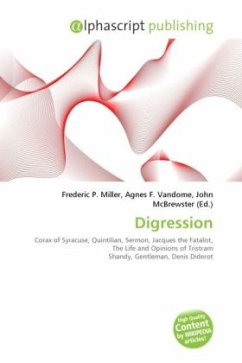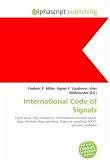High Quality Content by WIKIPEDIA articles! Digression parekbasis in Greek, egressio, digressio and excursion in Latin is a section of a composition or speech that is an intentional change of subject. In Classical rhetoric since Corax of Syracuse, especially in Institutio Oratoria of Quintilian, the digression was a regular part of any oration or composition. An oratorical discourse should have five sections: prelude, narration, argumentation, digression and conclusion. But, the place of digression is not fixed, so it can come before or after argumentation. After setting out the topic of a work and establishing the need for attention to be given, the speaker or author would digress to a seemingly disconnected subject before returning to a development of the composition's theme, a proof of its validity, and a conclusion. This use of the digression is still noticeable in many sermons: after the topic, the speaker will introduce a "story" that seems to be unrelated, return to the subject, and then reveal that the story illustrates the speaker's point. A schizothemia is a digression by means of a long reminiscence.








